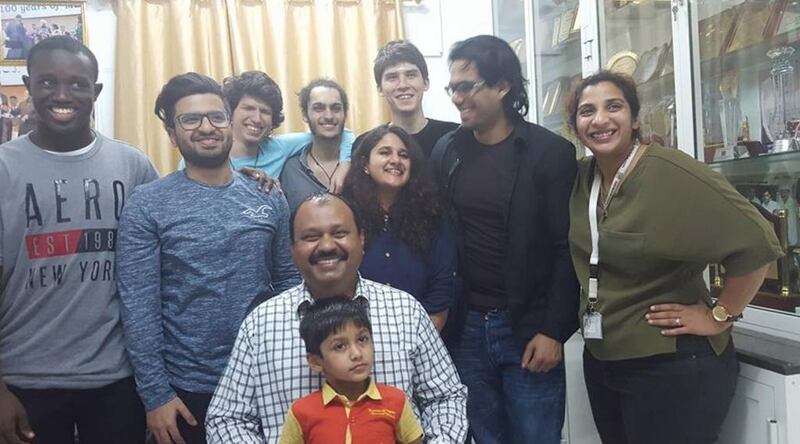What would inspire a man to dedicate his life to repatriating the bodies of the deceased, with no financial recompense – and, perhaps, to the detriment of his own family life and financial well-being?
That is what Dubai director Reshel Shah set out to discover with her short documentary The Undertaker, which chronicles the life and work of a remarkable UAE resident who has been doing just that for 16 years.
Ashraf Thamarassery found his calling while visiting a friend at a hospital in Sharjah. As he explains in the documentary, while there he met a couple of distraught Indian men. Their father had just died and they did not have the knowledge or funds needed to send his body back home to Kerala.
Despite having no experience of such a situation himself, Thamarassery was moved to help the men and others in a similar situation. He has since returned almost 4,000 bodies to their home countries and refuses to take payment for his services, instead choosing to live on the Dh4,000 a month he earns from his garage in India, which is run by his brothers.
“He met those two people and it touched him, and now I just don’t think he knows how to stop,” Shah says. “And I don’t think he wants to stop, because he’s now known in the UAE as a saviour to so many people and I think he really feels that he wants to keep that, if that makes sense.”
The work that Thamarassery does is well known in the community, which led the film crew to his door.
“It’s insane,” says Shah. “I remember at 5am one morning we got to his house during the shoot. He showed me his WhatsApp and he’d had 280 [new] messages – we’d only left him at 11 the previous night.
“He just doesn’t stop. In theory, Friday is his day off, but if something needs attending to on a Friday … he’s there.”
Shah believes Thamarassery’s motive for agreeing to appear in the documentary is more than recognition or seeking fame.
“When I approached him about making the film, he said to me: ‘If a thousand people watch this film, and one person decides they want to do this once a week, then I’ve made a difference’,” she says.
Despite Thamarassery’s apparent workaholic personality, Shah says she detected a carefully crafted balance between his work and family life.
“When he comes home, he just totally switches off,” she says. “You know when you’ve had a bad day at work and you come home and all you want to do is talk about it? For him, he will disconnect the second he’s in the house with his wife and kids.
“I think because he’s been doing this for so long he can do that because, emotionally, he just doesn’t connect anymore. I think you’d have to be that way to do a job like this.”
The six-minute documentary is available online, but Shah also has bigger plans for its future.
“We want to expand it to a 40-minute series, with four 10-minute episodes,” she says. “Right now, he tells us what he does but we want to show the audience what he does. Not in a tasteless ‘dead body’ way but we want to show the conversations he has, the cost of flight tickets to repatriate the bodies, which he often pays himself, even if he has to travel back himself with the body because the UAE relatives can’t get time off work – he will not leave a body alone until he knows it has reached safety. We want to capture all of that.”
Shah is now hoping to attract sponsorship, both for her series and Thamarassery’s work.
“He’s won more than 300 awards from companies in the UAE, so we’d like to say to them: ‘OK, thanks for the pat on the back, now show us the money’,” she says. “He is looking for an airline sponsor. The flight tickets are his biggest expense and it’s the one thing he really wants.”
Shah hopes to have the extended version of the documentary completed in time for it to premiere as a single 40-minute film at the Dubai International Film Festival in December.
She also is working on her second feature documentary, about the unusual Hindu tradition of elevating children with birth defects to the status of gods in India.
Her debut feature documentary was 2015's Black Sheep, which deals with gender-equality issues in India. It won multiple awards, including a UN World Human Rights Film Festival Award. It is available to watch at www.moviesaints.com.
• Organisations or individuals interested in sponsoring or supporting Thamarassery’s work can contact Shah at reshel@1dayproduction.com
cnewbould@thenational.ae





